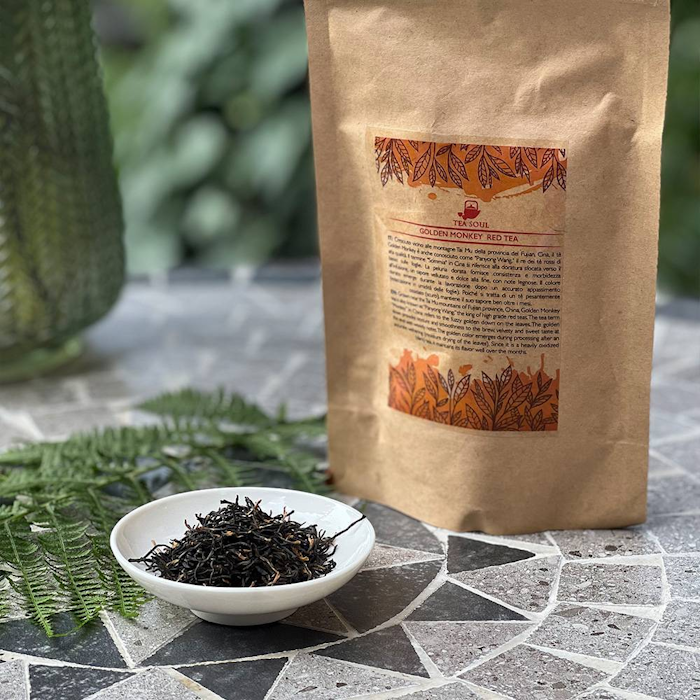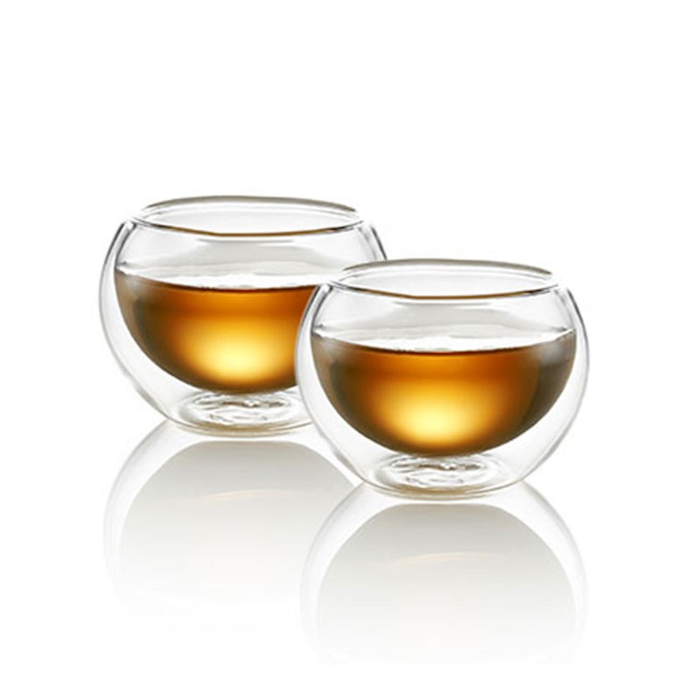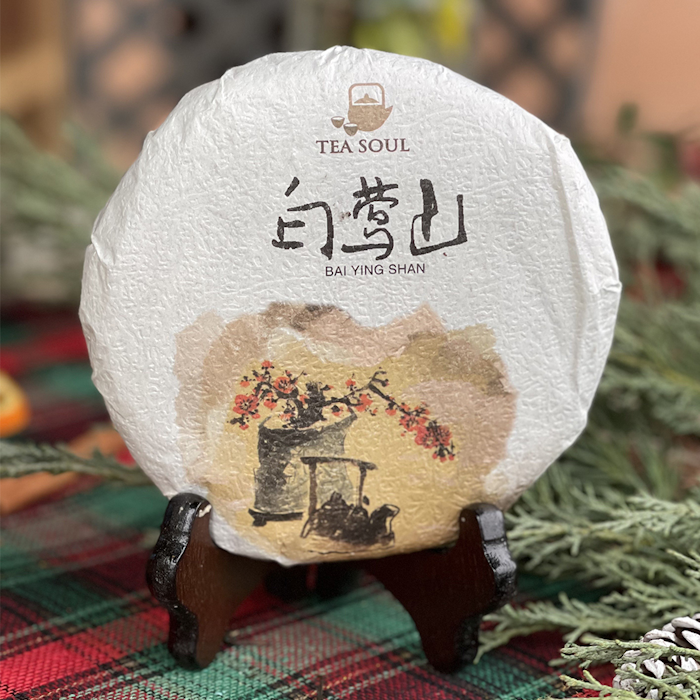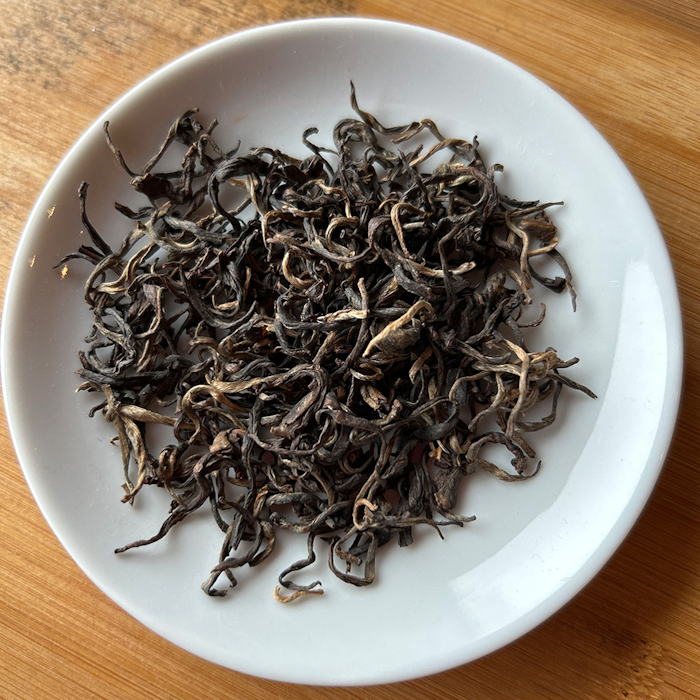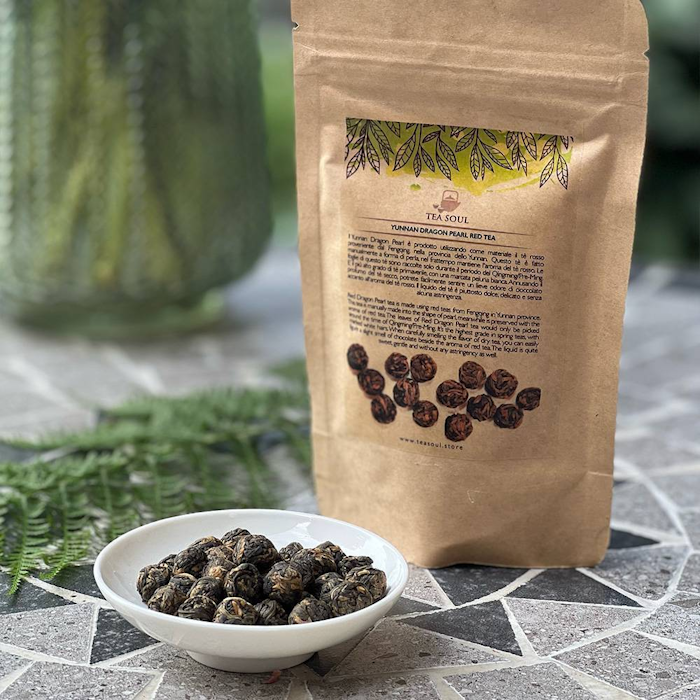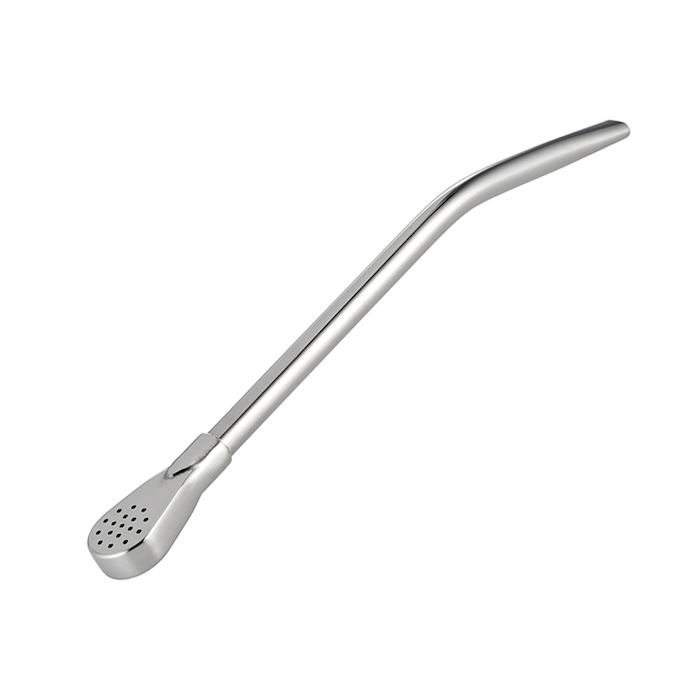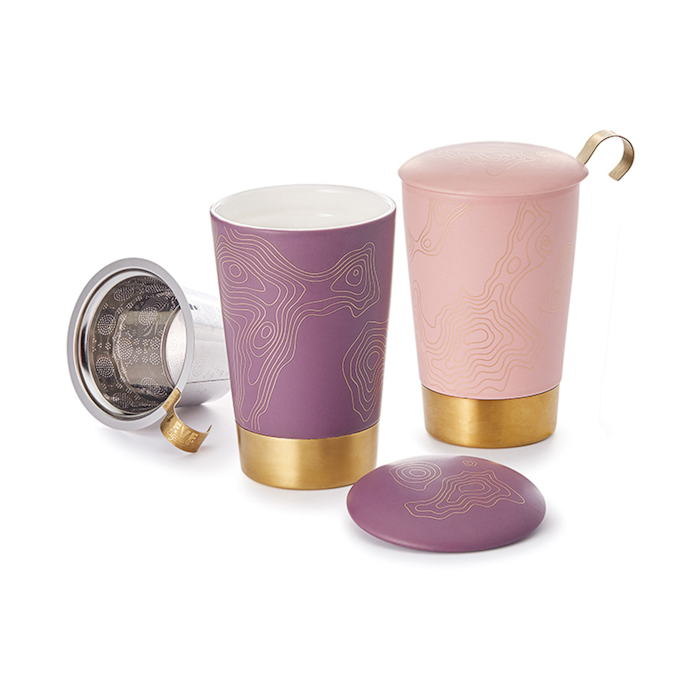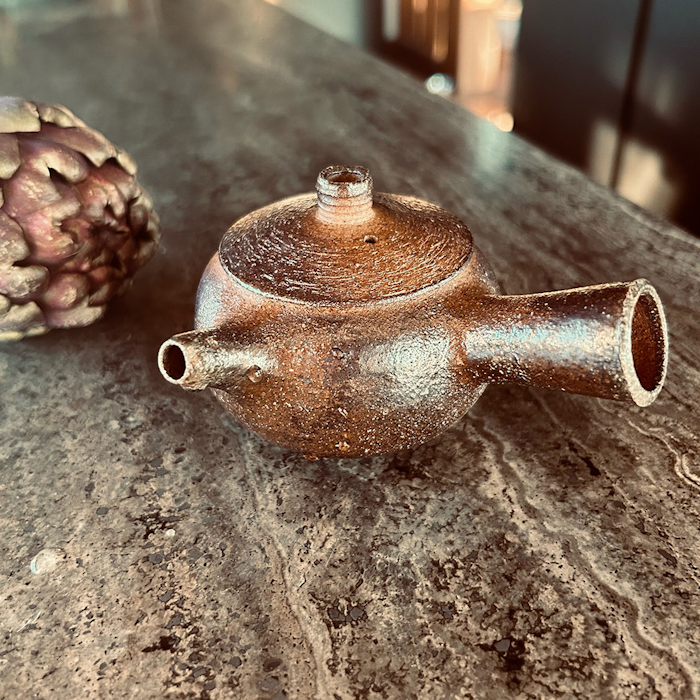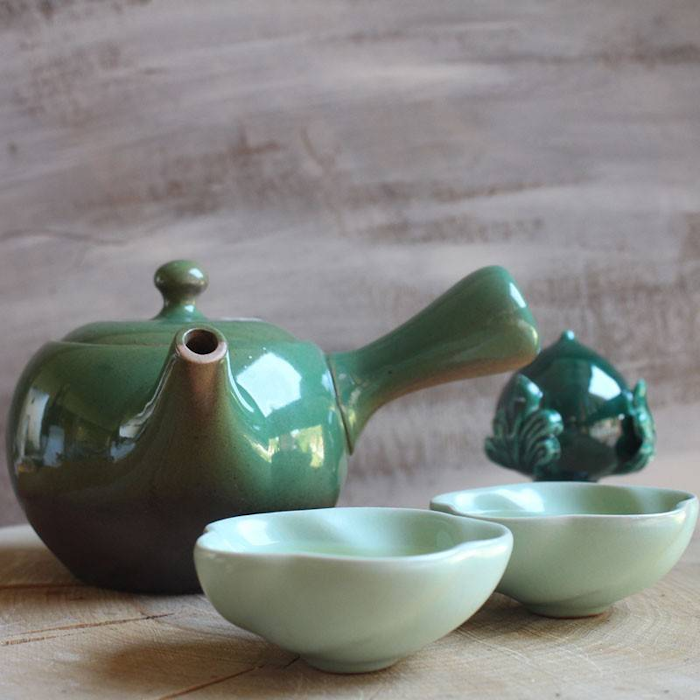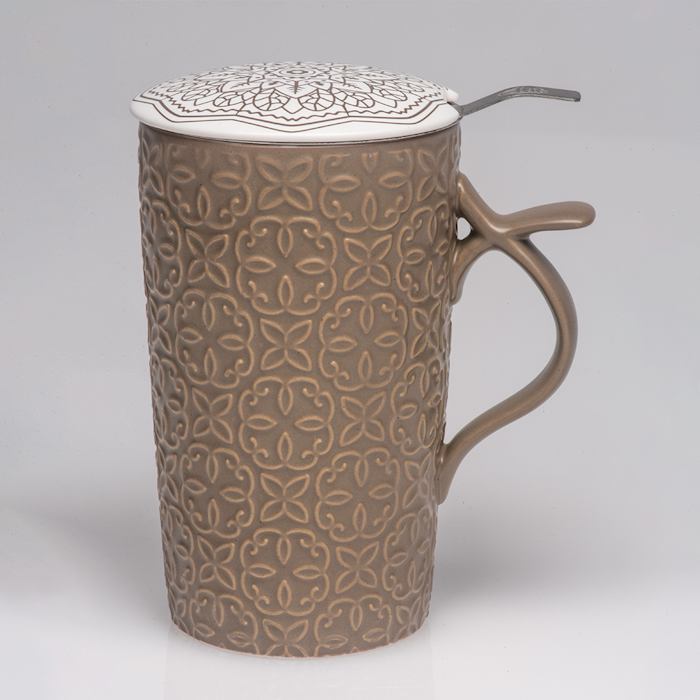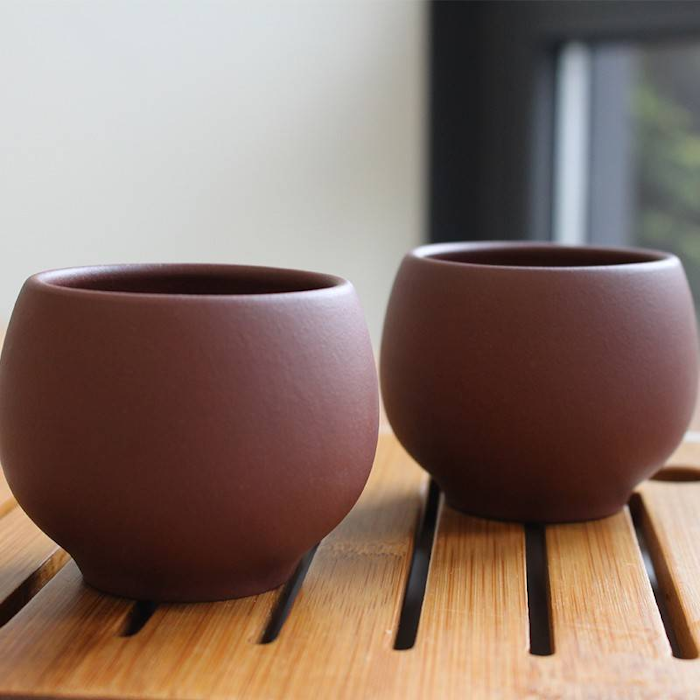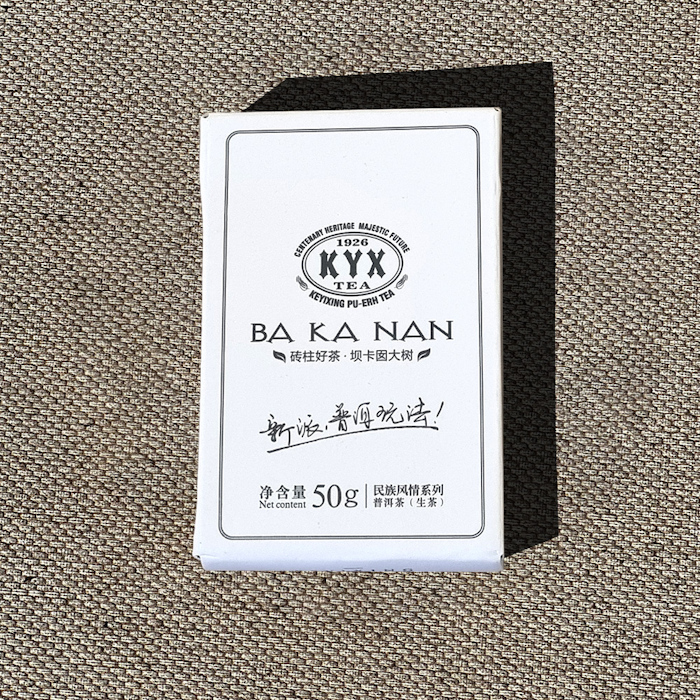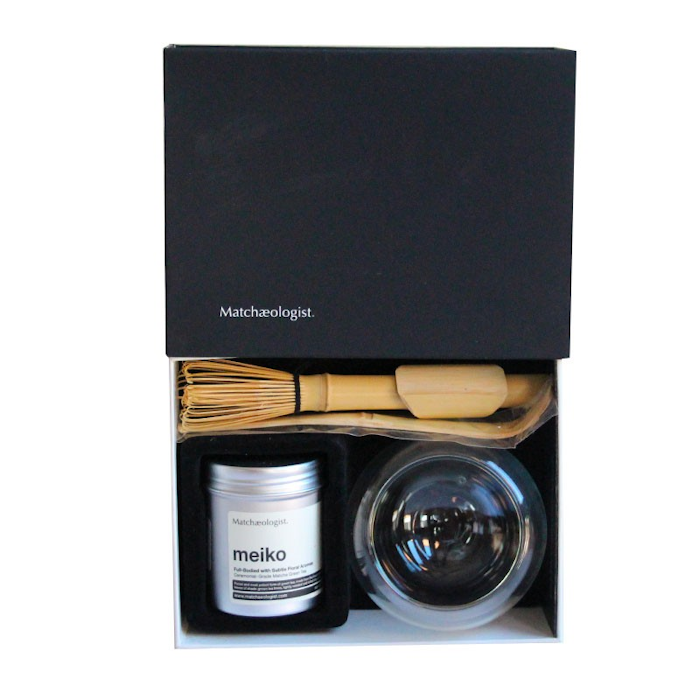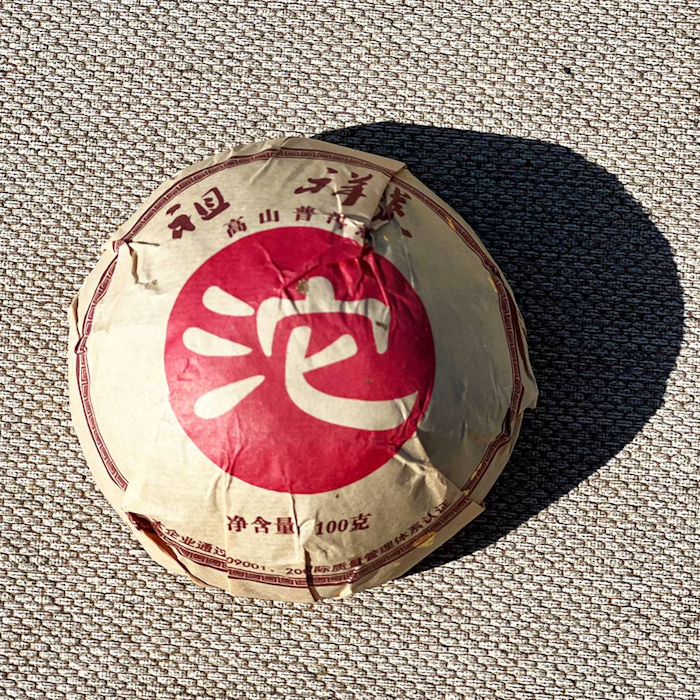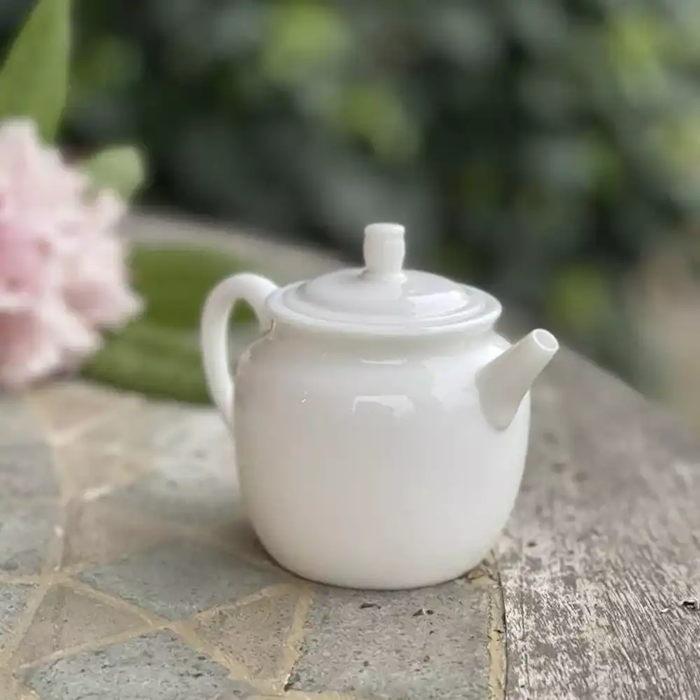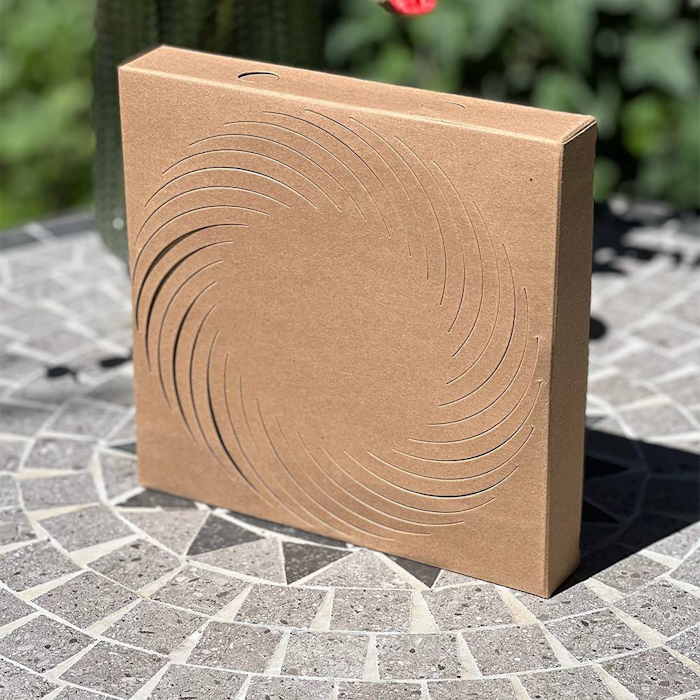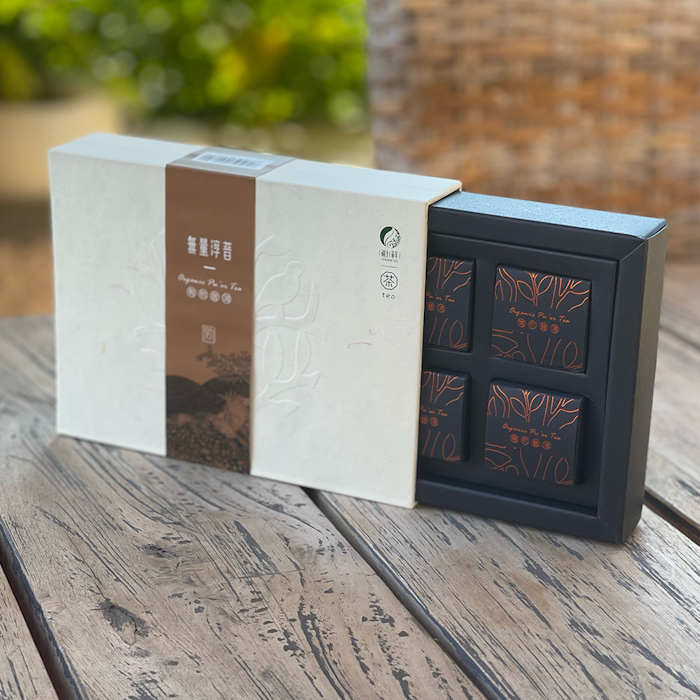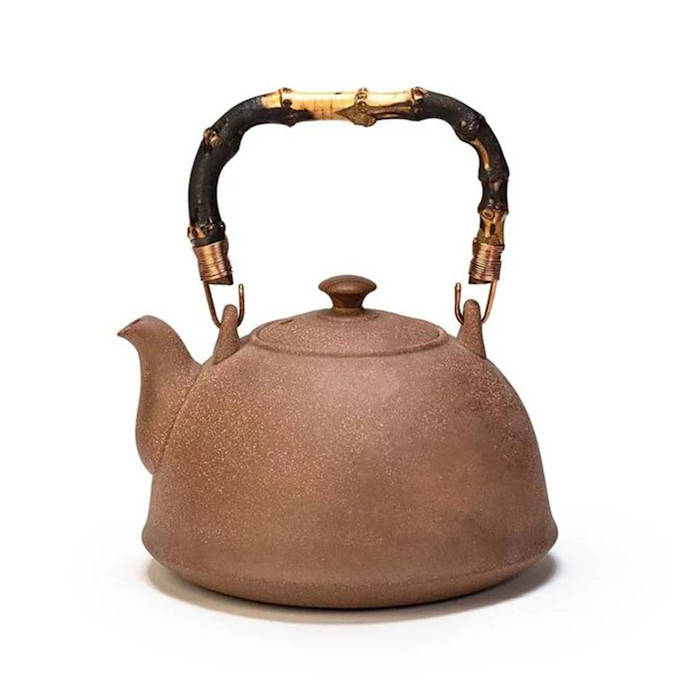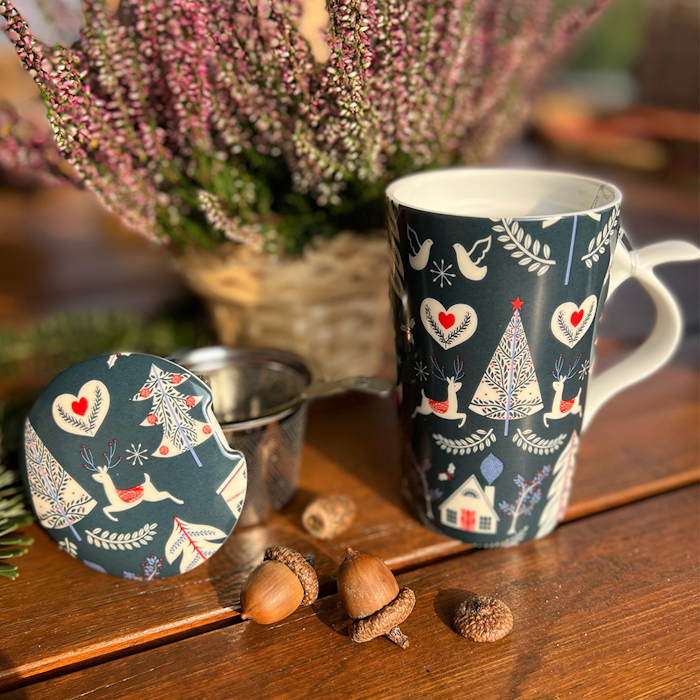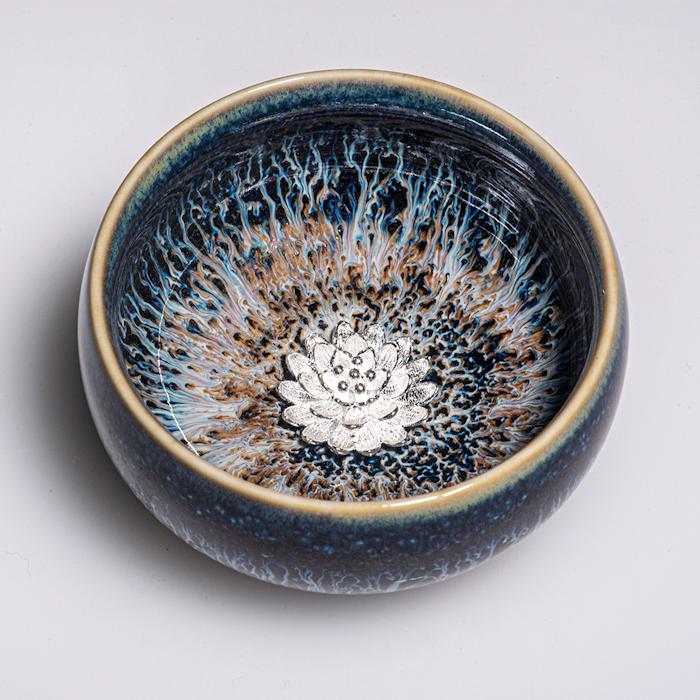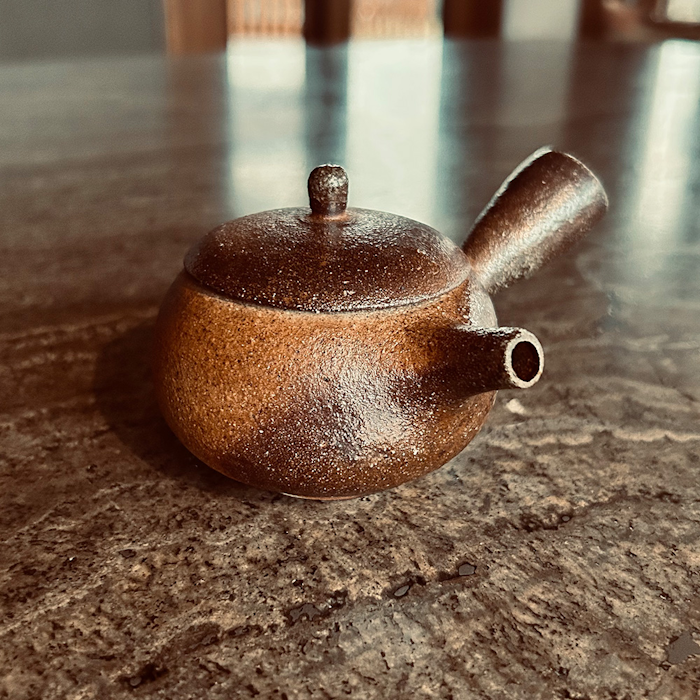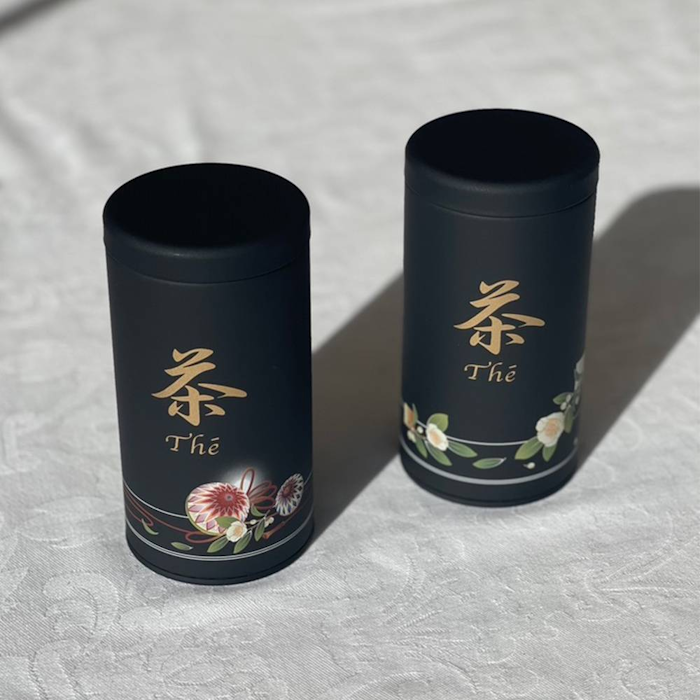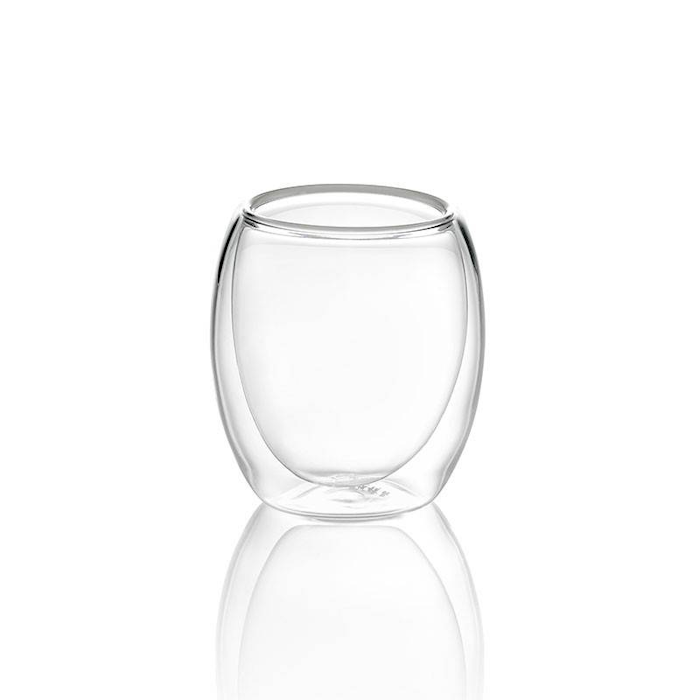The Puer Shu (cooked) Rose Mini Tuocha Tea comes in a format that may seem a bit strange to us but is quite common in China and is called Tuo. This word means bowl in Chinese and stands for the shape that the leaves of this tea take when pressed.
The advantages offered by the format of this product are: greater ease of transport, always having a convenient single dose already ready to use on hand, and, most importantly, ensuring favorable conditions for the puer to continue to ripen its flavors as it ages.
Thou, given its many advantages, is also produced in much larger formats than this product. In some cases, one can even find Tuo weighing a kilogram or more.
To better understand this product, it is necessary to delve into the area of origin of its leaves since, in most cases, it is the place of origin itself that gives the tea its name and main organoleptic qualities.
This puer, specifically, is composed mainly of the crop made in the mountainous area around the city of Menghai in the western part of Xishuangbanna Autonomous Prefecture, south of Yunnan.
In addition to the camellia leaves, during the pressing of Puer Shu (cooked) Rose Mini Tuocha Tea, dried rose petals were added, which is one of the classic natural elements used in China to flavor a product.
The expression of these two elements presents itself on the palate, at first, with an aromatic trace due to the rose, which is followed by earthy and woody notes typical of puer shu. After a few sips, the floral part will merge with the fermented character of the tea, thus giving a feeling of further smoothness and roundness to the brew in the mouth.
It is therefore interesting to experiment with the flavored variant of this cooked tea as the flavors present therein influence each other greatly and, therefore, can help the palate become familiar with the taste of this type of puer with a robust character that often exhibits fermented and penetrating flavors.
We invite you to try other products flavored in this way such as Puer Sheng (raw) Nuo Mi Xiang Mini Tuocha Tea.
Location of Origin
Menghai Region, Yunnan - China
Production
After harvesting, the leaves of Puer Shu (cooked) Rose Mini Tuocha Tea are left to wither in the sun for a certain amount of time depending on the producer before going through the "green killing" stage which is purportedly similar to that used to produce green teas.
The special feature, in this case, lies in not heating the leaves as much as is done for a green tea so that certain enzymes capable of modifying the flavors over time are preserved.
Once cooked, the leaves are taken in large quantities and stacked to form large piles. The vegetable mass thus arranged is then moistened and covered with cloths so that heat can be retained and the fermentation process can begin. Here the producer will have to skillfully move the leaves around and wet them lightly as he goes so that the fermentation progresses steadily and is distributed as evenly as possible.
On completion of this process, which can last from 20 to 70 days, the leaves are spread out and left in contact with the air so that the microorganisms responsible for fermentation dry out and die, leaving the finished product. Once there, one can (eventually) proceed to press the puer so as to give it the best conditions to be transported and aged.
To press the leaves they are joined to rose petals and passed through for a few seconds by a strong jet of steam so as to be made soft on the outside and, subsequently, they are collected in a sock or sack that will give the product its shape, usually discoidal.
To ensure that this structure remains fixed over time the sack is left for hours under a stone or mechanical press while the leaves lose that residual moisture taken up by the steam in the previous step.
Infusion Method of Puer Shu (Cooked) Rose Mini Tuocha Tea
We strongly recommend infusing Puer Shu (Cooked) Rose Mini Tuocha Tea in the traditional Chinese method (Gong Fu Cha) with a Gaiwan with a capacity of about 150 ml. Following this preparation, multiple infusions can be made with 1 Tuo that are useful to feel all the flavors of the tea at its best.
After a quick rinse of the leaves with water at a temperature of 95°C, an initial infusion of 20 seconds can be made, and then, keeping the water at the same temperature, the product can be continued to be exploited by adding more to water and increasing the previous infusion time by about 5 seconds (20 - 25 - 30...).
For a more traditional preparation in the Western style, we recommend a Tuo in a 400-mL teapot with water at 95°C for an infusion time of 2-3 minutes.
For a better tasting experience, we suggest that you strain the tea as soon as the set infusion time is over. The timing we suggest can be slightly modified to your liking to achieve a more or less intense taste.
We recommend storing in a cool, dry place away from direct sunlight.
Benefits of Puer Shu Tea (cooked)
Puer Shu Teas (cooked) give an infusion that is particularly suitable for getting rid of the sense of heaviness after large meals. This is made possible by substances that develop naturally in the leaves during the fermentation process in processing.
These teas from Yunnan, because of their taste and body, are also able to suggest a pleasant sense of warmth, which is great for coping with the colder seasons and inducing a pleasant relaxing effect.
Puer Shu (cooked) Teas also possess low levels of caffeine and, therefore, can be easily consumed at any time of the day.









